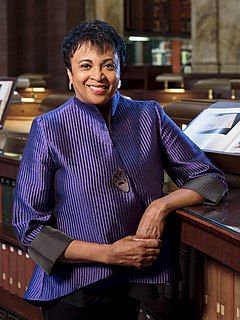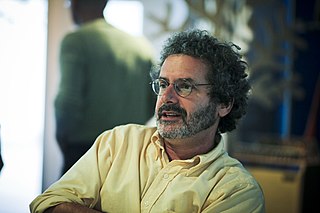A Quote by Ro Khanna
The digital revolution is one that every community should and can participate in.
Quote Topics
Related Quotes
People over the age of thirty were born before the digital revolution really started. We've learned to use digital technology-laptops, cameras, personal digital assistants, the Internet-as adults, and it has been something like learning a foreign language. Most of us are okay, and some are even expert. We do e-mails and PowerPoint, surf the Internet, and feel we're at the cutting edge. But compared to most people under thirty and certainly under twenty, we are fumbling amateurs. People of that age were born after the digital revolution began. They learned to speak digital as a mother tongue.
If you want to be a great American, you have got to understand Ben Franklin, Thomas Jefferson, George Washington, how the American Revolution happened. I think if you want to be a good citizen of the digital age, it helps to feel comfortable with both the people and the ways of thinking that created the digital revolution.
Even revolution, which transforms a concrete situation of oppression by establishing the process of liberation, must confront this phenomenon. Many of the oppressed who directly or indirectly participate in revolution intend - conditioned by the myths of the old order - to make it their private revolution. The shadow of their former oppressor is still cast over them.
I believe that every photographer, every artist, should choose materials and equipment based on their own vision. I don't believe that non-digital is necessarily better than digital, or the reverse for that matter. They are just different, and it is my preference and choice to remain with the traditional silver process, at least for the time being.
































